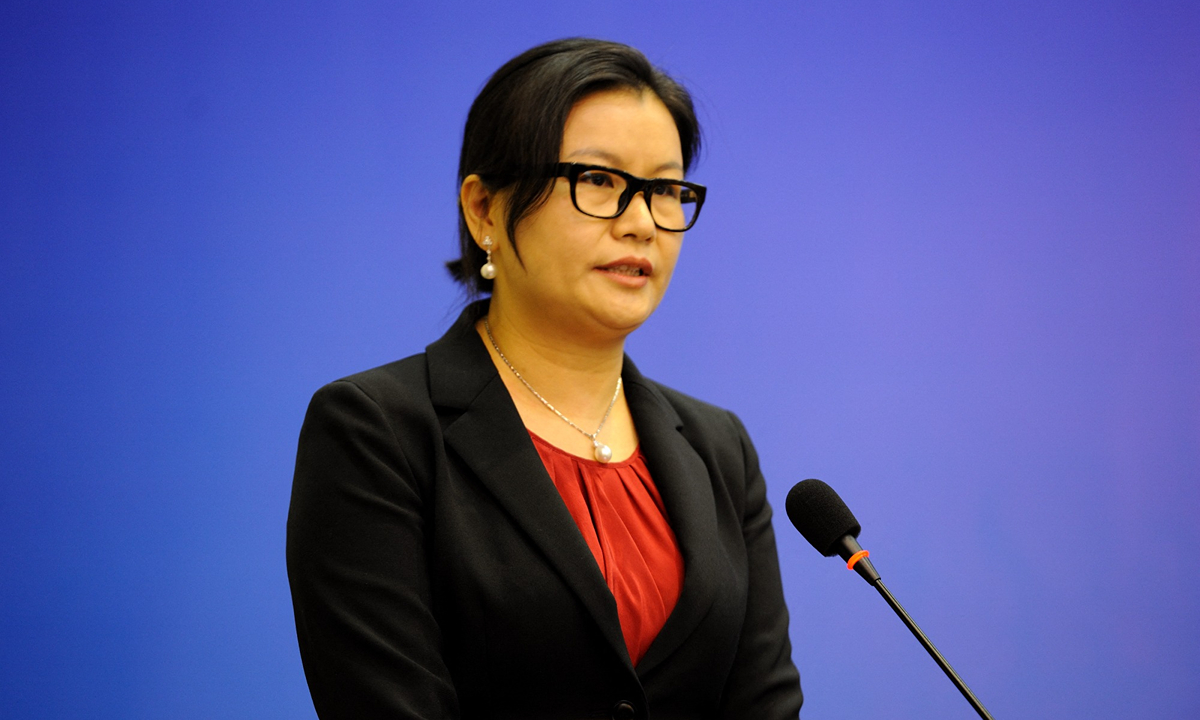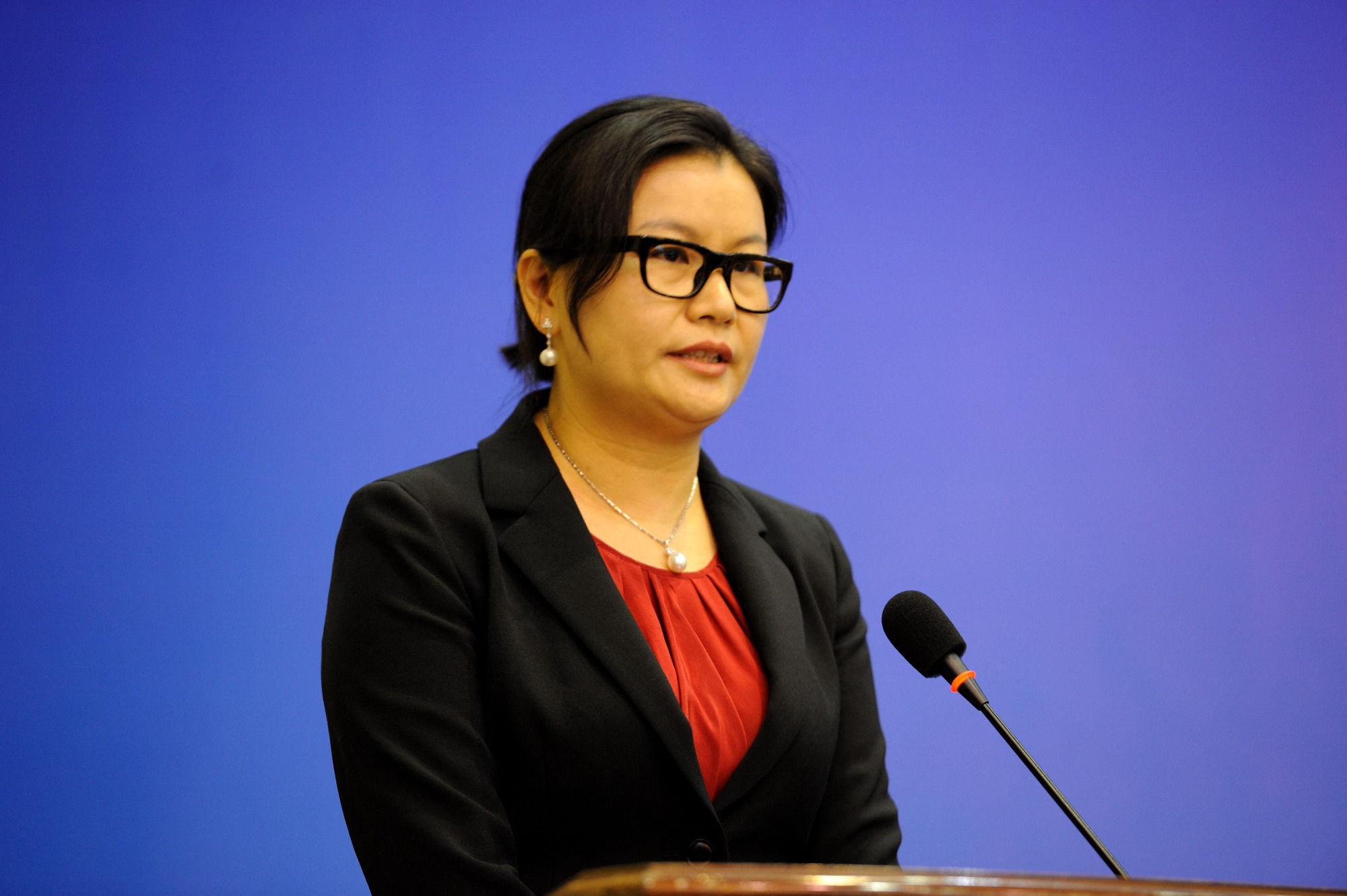From Factory Worker to "Touchscreen Queen": How Zhou Qunfei Became a Self-Made Billionaire

Chinese billionaire Zhou Qunfei, nicknamed the “touchscreen queen” for founding cover glass producer Lens Technology, began as a migrant factory worker from a tiny village and rose to build a US$13.3 billion fortune, becoming one of the world’s richest self-made women.
Zhou owns a 62% share in the company based in China, which constitutes the majority of her wealth. This stake is shared with her spouse. Bloomberg reported, citing the firm’s 2024 interim report.
Lens Technology, known for manufacturing an extensive array of lenses and cover glasses, such as touch screens for both Apple and Samsung gadgets, is publicly traded on the Shenzhen Stock Exchange. As per their official site, the company has a current valuation of approximately 104.3 billion yuan (around US$14.4 billion). Their revenue for the year 2024 was recorded at 69.9 billion yuan.
In 2015, the company elevated Zhou to the summit of the global ranking for self-made wealthiest women, and she continues to be part of this distinguished group even now.

|
|
Zhou Qunfei, who leads Lens Technology as chairwoman, gives a talk at an occasion honoring International Women’s Day in Changsha city, located in central China’s Hunan province, on March 7, 2015. The image was captured by Imaginechina through AFP. |
Her ascent to the pinnacle exemplifies a traditional tale of rising from humble beginnings. Being the third child among her siblings, Zhou was raised in a modest agricultural community located in central China’s Hunan province.
When she was only five years old, her mother died, and her father later suffered the loss of one finger and much of his vision due to an industrial accident. Despite having to rear pigs and ducks to help sustain her family, she managed to excel academically.
"In the village where I grew up, a lot of girls didn’t have a choice of whether to go to middle school. They would get engaged or married and spend their entire life in that village," Zhou recalled in an interview with the New York Times , opting for a distinct course of action instead.
At the age of 16, she left high school in 1986 and relocated to Shenzhen in south China. There, she took up employment in a watch glass factory, receiving just $1 daily for her labor. The work was strenuous; Zhou often put in shifts from 8 a.m., continuing through till midnight, and occasionally even extending to 2 a.m.
But she had bigger dreams. Determined to build something of her own, she began taking night classes in accounting, laying the groundwork for a future business.
In 1993, Zhou and a few relatives started a watch lens workshop out of a three-bedroom apartment in Shenzhen that doubled as their living space. The business was founded using HK$20,000 (US$2,570) that Zhou had saved up.
She took on various tasks at the fledgling company, including repairing and designing factory machinery, and taught herself complex screen-printing processes and difficult techniques to improve prints for curved glass.
"In the Hunan language, we call women like her ‘ba de man,’ which means a person who dares to do what others are afraid to do," said one of her cousins who helped start the business.
Over the next decade, Zhou steadily expanded her operation into a full-fledged factory producing watch lenses with 1,000 workers.
However, the firm did not take off until a bold pivot into mobile phone glass, sparked by a surprise call from Motorola executives in 2003. The company was looking for a partner to develop a glass screen for its new product, the Razr V3.
Motorola sought a sturdier option than the usual plastic screens and offered assistance with establishing the production process. Zhou agreed to this proposal.
The agreement led to her most challenging time that very year. "A competitor was envious," Zhou shared. CNBC That firm joined forces with the raw materials provider and attempted to push me out of the market.
The supplier subsequently insisted on receiving complete payment in advance prior to making any deliveries, which deviates from standard practices in the industry.
Despite her constrained budget, Zhou hurriedly tried to fulfill the supplier’s requirements to guarantee that the agreement with Motorola would proceed smoothly. She resorted to selling her house and various possessions, yet this still fell short of what was needed.
Pushed to her limits, Zhou admitted she felt overwhelmed and once considered jumping off a train platform, but a call from her daughter jolted her back and reminded her of her responsibilities to her family and employees.
She reached out to Motorola with a plea for help and, with that support, moved past the crisis.
In 2007, a fresh chapter began when Apple launched the iPhone featuring a glass touch screen. Zhou’s firm was selected as one of the suppliers for this project. This collaboration brought significant attention to Lens Technology.
Zhou put significant resources into upgrading equipment and hiring trained professionals. As per her coworkers, she even pledged her flat multiple times to obtain funding for these endeavors.
Her hard work was rewarded when Lens Technology went public in 2015, 22 years after it began as a family-operated workshop, making Zhou the wealthiest individual. self-made female billionaires worldwide at the time with a $10.2 billion fortune, as listed by Forbes .
Her ascent became emblematic of a new wave of women entrepreneurs in China who amassed significant wealth with virtually no resources. Back then, tales of such achievements were uncommon.
At the head of a technology powerhouse, Zhou stands out for her sophistication, her preference for Christian Dior outfits, and her precise, demanding management approach.
Nevertheless, she keeps emanating grace and modesty, always remembering her origins and how her narrative could have effortlessly taken a different turn.
In contrast to well-known entrepreneur celebrities such as Jack Ma, the billionaire founder of Alibaba, Zhou remained relatively obscure in China until her company’s initial public offering in 2015. She apparently found post-IPO recognition difficult to handle, as reported, according to the source. South China Morning Post .
She seldom granted interviews or showed up at events, opting instead for maintaining privacy.
"I'm not qualified to be a high-profile person," she remarked. "I think it's important not to get carried away when you are successful - and not to let yourself feel gloomy when times are bad."
Reflecting on her journey, Zhou believes perseverance is crucial to success. "I have encountered many difficulties and setbacks as an entrepreneur," she said. "If I gave up then, there wouldn’t have been Zhou Qunfei or Lens Technology."
Posting Komentar untuk "From Factory Worker to "Touchscreen Queen": How Zhou Qunfei Became a Self-Made Billionaire"